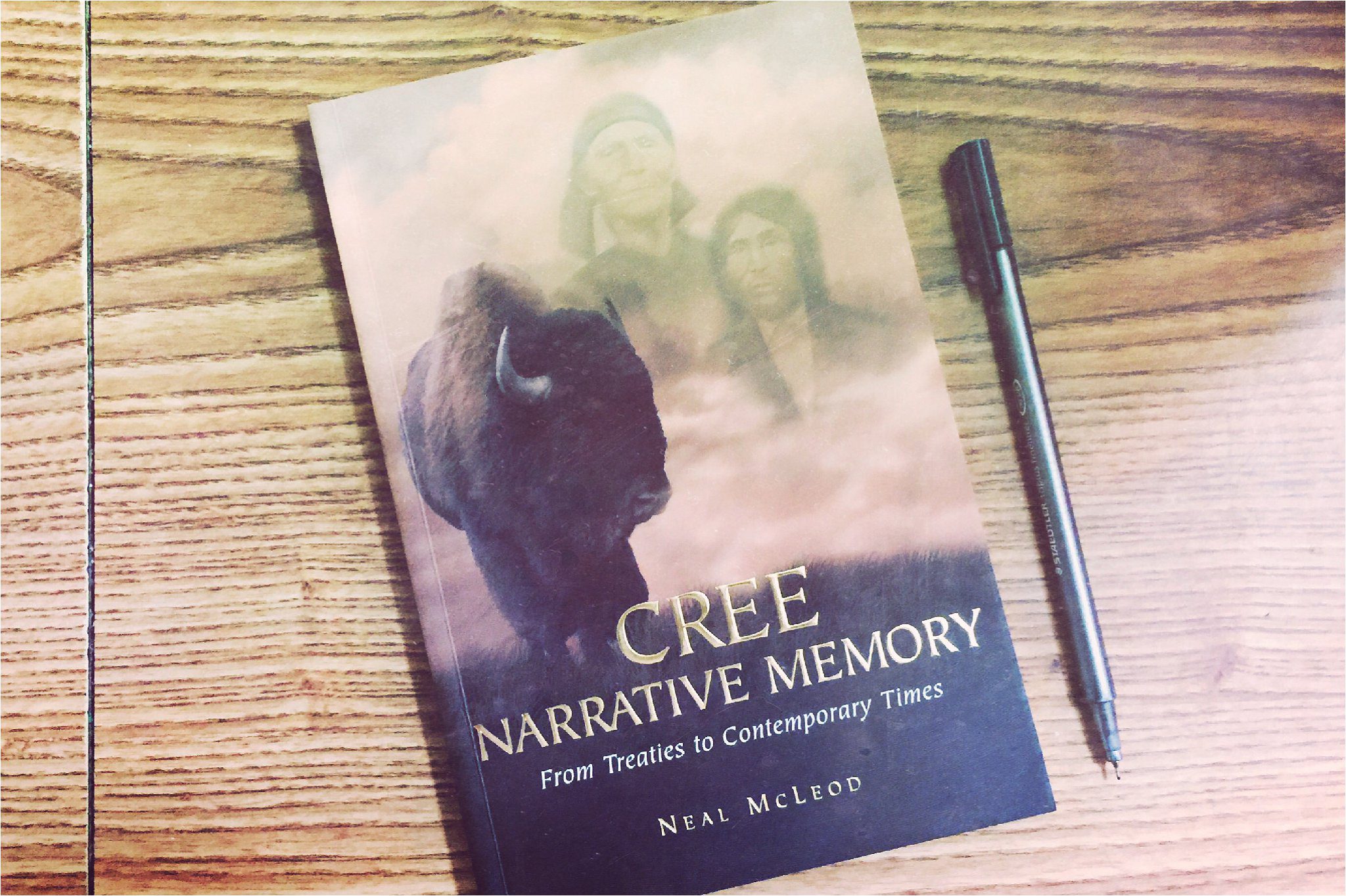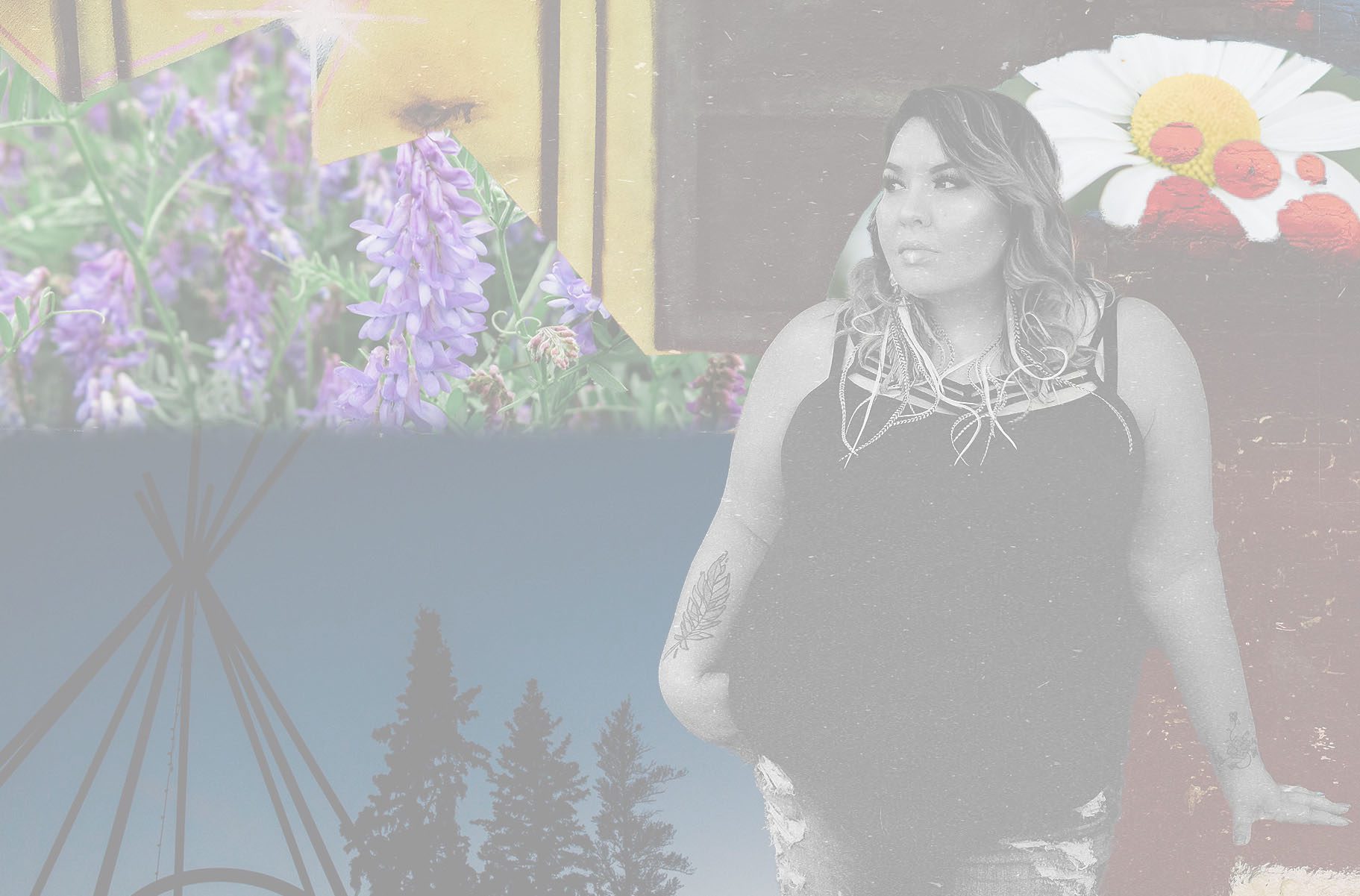
I really enjoyed this non-fiction piece and plan os using it as research for my own thesis. McLeod chats about the concept of community memory, community story and how these stories that we carry connect us to one another as well as our pasts. They are a form of decolonization, building upon the the ideas issued with Highway that we are nothing but stories.
When McLeod touches on kinship (13-15), he says “people tell stories to other people who are part of the stories and who assume the moral responsibility to remember” (15). He shares this story about how his family got the name McLeod (15) and it mimics the stories that we carry of how we received the name Campbell, and I’m glad to see these stories as part of the narrative, in an approachable way.
“The author shows how stories are vital to the understanding of Cree history and the recent attempts to revive religious ceremonies, language, political structures, and artistic or literary practices. McLeod also contends, however, that “Cree narrative memory is more than simply storytelling.” It involves the collective, intergenerational memories of many skilled storytellers. Through the examinations of family, spirituality, identity, and connections through time and space of the Plains Cree people, the author has constructed an original interpretative framework that draws upon original research showcasing the power and importance of language.” – Source
Quotables:
- “It is a sense of place that anchors our stories; it is the send of place that links us together as communities. Indeed, it is the sense of space that connects us to other beings and the rest of creation” (6)
- “Cree narrative memory is more than simply storytelling. A skilled storyteller strings together to suit a particular audience” (7)
- “Cree narrative memory s a larger, intergenerational, collective memory. Cree narrative form part of a larger, collective memory” (8)
- “The stories found in memory help people find their way out of colonialism” (9)
- “This concept of remembering publicly is important because it get stop the hearts of Cree narrative history. These storytellers remembered because they felt a moral duty to do so. Stories were offered as traces of experience through which the listeners had to make sense of their own lives and experiences” (13)
- “Kinship, wâhkôhtowin, grounds the collective narrative memory within nêhiyâwiwin. There are important relationships not only among human beings, but also with the rest of creation” (14)
- “Words are like arrows that can be shot at the narratives of the colonial power. Word-arrows have transformative power and can help Indigenous people come home. They help to establish a new discursive space. Every time a story is told, every time one word of an Indigenous language is spoken, we are resisting the destruction of our collective memory” (67)
- “Stories act as the vehicles of cultural transmission by linking one generation to the next” (68)
- “To come home through stories is to anchor ourselves in the world” (70)
- “Storytellers have to remember the past, and they have to remember the language. … Their bodies become houses of ancient sound” (100)
Buy the Book: Cree Narrative Memory


